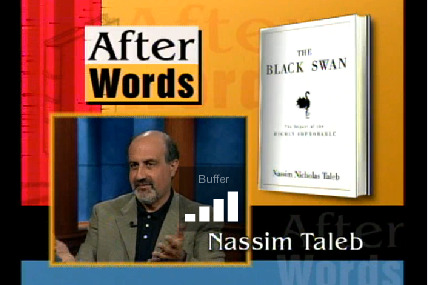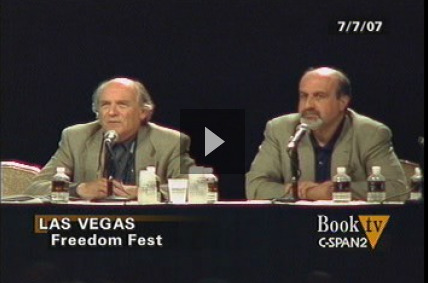Shared by JohnH
HatTip to Dave Lull.
CORPORATE CRIME REPORTER
Taleb says that Ronald Reagan started it.
“This is why I get along with Ralph Nader,” Taleb says. “Nader was the
first to say that the difference between Republicans and Democrats is cosmetic.”
“It is Ronald Reagan who bailed out the banks in 1983 and started this whole process.”
Reagan of the Milton Friedman free market philosophy?
“Exactly,” Taleb said. “There is something about governments that will be susceptible
to the pressure of lobbyists to bailout the big corporations.”
“Had Reagan not bailed out Citibank in 1983, we would not be here.”
Where would we be?
“If the government didn’t bail out Detroit and the banks, we would have a
better Detroit and better banks. Smaller and more competitive companies.”
“People forget that much of the growth of companies came from debt building.”
“Small companies are the energetic ones. The energy and innovation comes from small
companies in California. And these companies neither go into debt nor do they
get bailed out.”
Okay, so government shouldn’t be bailing out the big banks.
But what about cracking down on corporate crime?
“If two adults want to speculate, they should be free to do so, conditional on society
not bailing them out,” Taleb says.
“The government should be there to enforce the rule of no socialization of losses.
You want to make sure the banks are never big enough to take these risks at
the expense of society.”
“The rule is as follows – if you want a bailout, you are under our regulation.
And we want you small. And we don’t want you to take speculative risks.
In other words, you are a utility. And you obey our rules.”
“If you are not to be bailed out, then you can do what you want, providing that
you don’t harm the public.”

